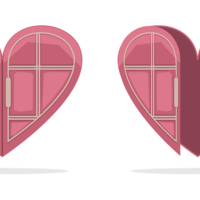Feeling a bit disengaged or withdrawn in your relationship recently? Don’t feel badly. Most people do.
Everyone—no matter how close or intimate, and no matter how much you may love each other—sometimes feels disconnected from the people they love and are devoted to. Let’s face it: living with someone—or being around someone a lot—can really tax our patience. We can grow annoyed with people we also love and care about, including our children, parents, extended family, friends and especially our intimate partners.
There are so many ways of detaching and disengaging that we’re not always conscious of when we are doing it. So here is a list of some of the most common ways people use to disconnect from each other, with the hope that if you become conscious of the ways you withdraw, you’ll do it less often:
- Not having time for a connected relationship. Making your intimate partner a low priority in your life.
- Tuning out. Not paying attention, being distracted, being preoccupied with other things or being tired.
- Using the demands of parenthood to keep your relationship a lower priority.
- Being a poor listener. Frequently interrupting, talking over someone, or listening for what you can disagree with or argue about.
- Having a defensive wall up, so your partner doesn’t feel you’re receptive to his/her feelings, requests, hurts or needs. Your partner will not feel heard, and instead is likely to feel minimized, dismissed, unimportant or devalued.
- Not allowing yourself to take to heart that which your partner says matters to him/her, and not letting it influence you. Acting as if you don’t value what your partner says or how s/he feels, and showing little empathy or compassion for his/her feelings.
- Infidelity. For some this includes Internet porn sites, and it definitely includes romantic or sexual flirting.
- Being extremely possessive, jealous or paranoid. The other person needs his/her own sense of individuality, autonomy and freedom, and will resent you if s/he feels treated as an extension of you.
- Judging, criticizing or shaming. We all have judgments and get critical at times, but how are such criticisms offered? In an attacking, shaming, belittling way? Or with tact, diplomacy, kindness and sensitivity? The difference between saying something from a position of anger/irritation and saying something from kindness and tact is huge.
- Getting abrasive quickly or frequently. It pushes the other person away, and makes him/her afraid of you.
- Treating your feelings, needs, irritations, sensitive subjects and requests as far more important than your partner’s.
- Not being empathetic to your partner’s needs, wants or desires.
- Making everything about you. How you feel, what you want, how things will affect you.
- Withdrawing generosity of spirit and friendship as soon as you get upset or angry.
- Addictions. The Internet, overworking, excessive drinking, being irresponsible or untrustworthy with money, watching too much TV, porn, food, drugs, etc. All of these keep the relationship more distant.
- Incessant complaining.
- Demeaning or belittling words or behaviors. Being rude. Name calling. Being hateful.
- Taking a lot more than you give. Asking for a lot but giving only what you feel like giving. This includes not being a generous lover, and not taking care of your partner sexually the way s/he desires.



